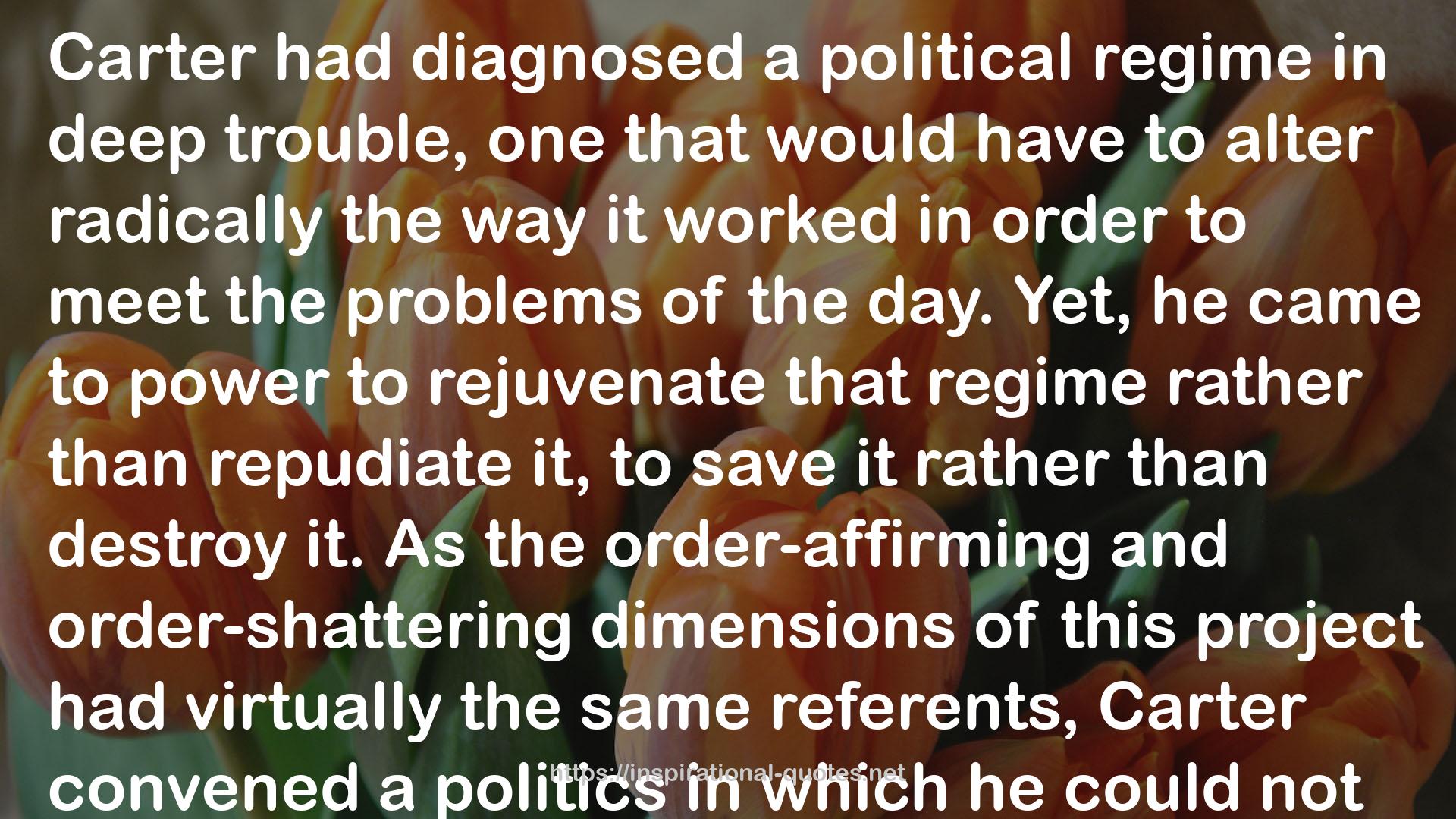" Carter had diagnosed a political regime in deep trouble, one that would have to alter radically the way it worked in order to meet the problems of the day. Yet, he came to power to rejuvenate that regime rather than repudiate it, to save it rather than destroy it. As the order-affirming and order-shattering dimensions of this project had virtually the same referents, Carter convened a politics in which he could not win for winning. To make his critique credible, he would have to offer potent prescriptions for changing the way government did business. But the more potent his prescriptions, the harder he would have to fight his ostensible allies to secure them; and the harder he had to fight to administer his remedies, the more elusive his case for the vitality of the regime would become. Earnest in the pursuit of his objectives, he could not but drive the disjunction between the regime and the nation beyond repair. The very relationship that Carter sought to carry on with the political establishment served to magnify the problems he had ostensibly come to Washington to resolve. "
― , The Politics Presidents Make: Leadership from John Adams to Bill Clinton
Image for Quotes

Carter convened a politics in which he could not win for winning. To make his critique credible, he would have to offer potent prescriptions for changing the way government did business. But the more potent his prescriptions, the harder he would have to fight his ostensible allies to secure them; and the harder he had to fight to administer his remedies, the more elusive his case for the vitality of the regime would become. Earnest in the pursuit of his objectives, he could not but drive the disjunction between the regime and the nation beyond repair. The very relationship that Carter sought to carry on with the political establishment served to magnify the problems he had ostensibly come to Washington to resolve." style="width:100%;margin:20px 0;"/>
 Carter convened a politics in which he could not win for winning. To make his critique credible, he would have to offer potent prescriptions for changing the way government did business. But the more potent his prescriptions, the harder he would have to fight his ostensible allies to secure them; and the harder he had to fight to administer his remedies, the more elusive his case for the vitality of the regime would become. Earnest in the pursuit of his objectives, he could not but drive the disjunction between the regime and the nation beyond repair. The very relationship that Carter sought to carry on with the political establishment served to magnify the problems he had ostensibly come to Washington to resolve." style="width:100%;margin:20px 0;"/>
Carter convened a politics in which he could not win for winning. To make his critique credible, he would have to offer potent prescriptions for changing the way government did business. But the more potent his prescriptions, the harder he would have to fight his ostensible allies to secure them; and the harder he had to fight to administer his remedies, the more elusive his case for the vitality of the regime would become. Earnest in the pursuit of his objectives, he could not but drive the disjunction between the regime and the nation beyond repair. The very relationship that Carter sought to carry on with the political establishment served to magnify the problems he had ostensibly come to Washington to resolve." style="width:100%;margin:20px 0;"/>